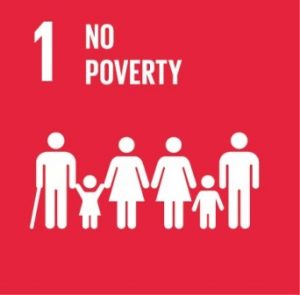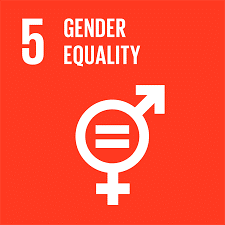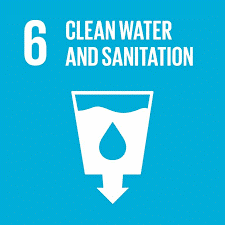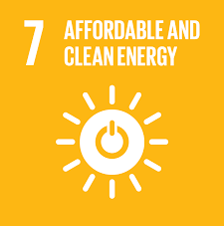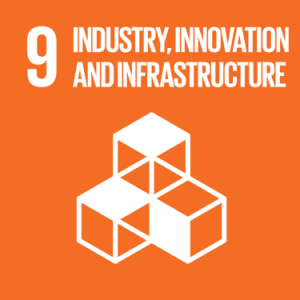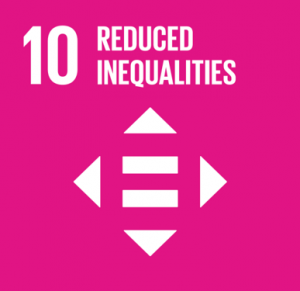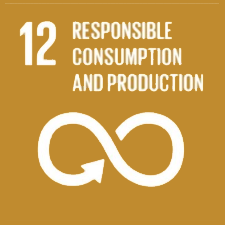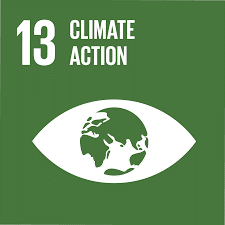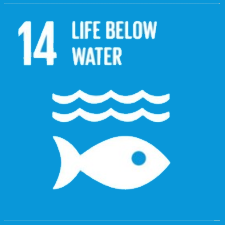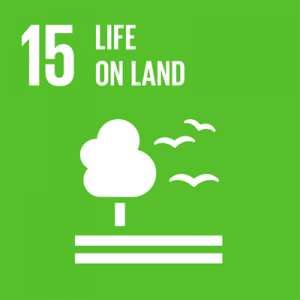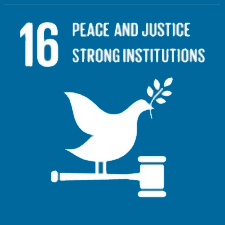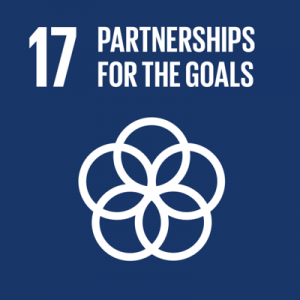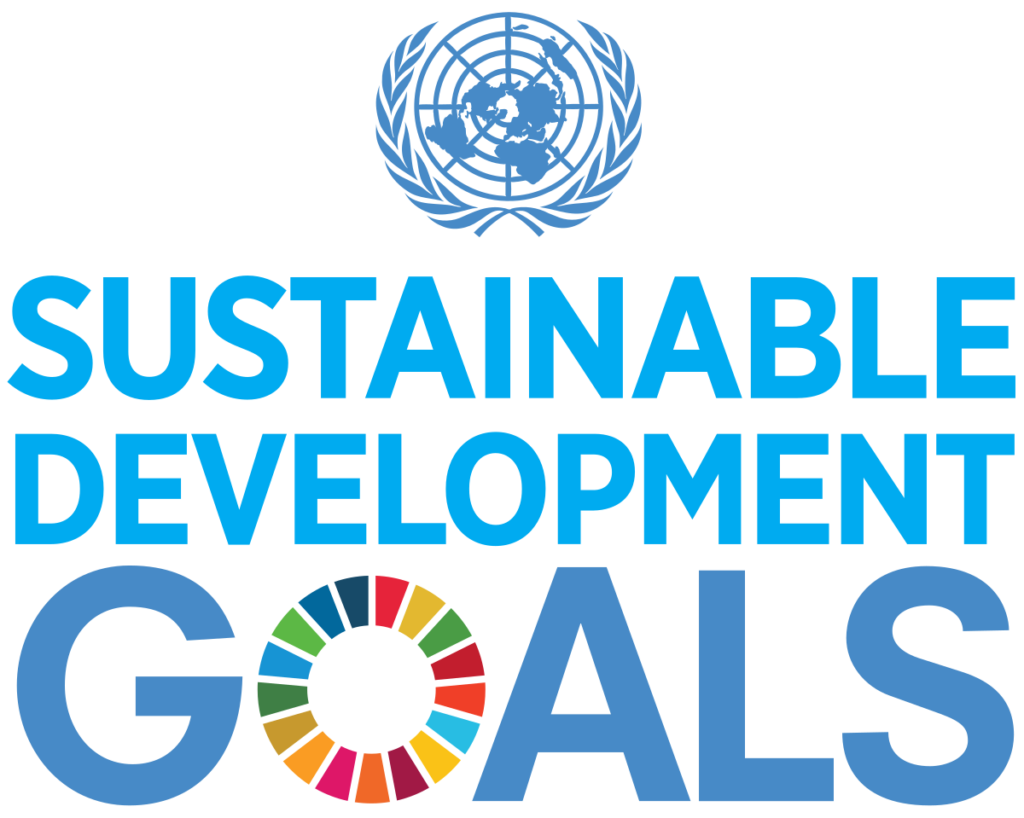SUSTAINABLE DEVELOPMENT GOALS
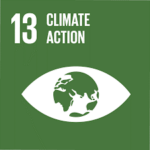
SDG 13: CLIMATE ACTION
“Climate change is a crisis that will affect every part of society, and every country. Universities need to be at the forefront of action to reduce the impact of climate change, especially amongst the poorest who will be the most affected.”
(THE Impact Rankings)
Low-carbon energy use
IPB University performs renewable energy (low-carbon energy) regularly tracking from solar panel and gas generator sets. This activity is a form of IPB’s commitment to achieving the Green Campus program and reducing GHG. In 2021, there will be additional low-carbon energy sources in the form of 54 solar panels for building lighting and 1 gas generator set. Low-carbon energy in 2021 increased by 66.6 GJ (262%) from 2019.
Table 1 Low-carbon energy tracking on IPB campus

Documentation:
1. Solar panels for building lighting

2. Solar panels for public street lighting

3. Biogas Generator Set

Environmental education measures
IPB University organizes educational programs related to climate change issues. For example, IPB University held summer courses with the theme: Reducing Carbon Footprints, Lesson Learned for Post COVID-19 World. The summer course activity emphasized that the safe and comfortable campus ecosystem could address the world’s carbon emissions challenge. A double degree program was launched between IPB University and Western Sydney University during the activity.
In addition, there is a social media-based campaign for tackling carbon emissions through IPB Virtual Gowes (Cycling) event attended by all IPB civitas. Another campaign, “Low Carbon Diet Food, to tackle Climate Change Impact”, was organized by one of the student creativity program groups (PKM).
IPB University Students Campaigned Tackling Climate Change Through Low Carbon Diets Food
Read more about our activity related to SDG 13:
IPB University collaborated with UCLG-ASPAC to hold climate action plan development in 10 cities in Indonesia, i.e. Pekanbaru, Pangkalpinang, Bandar Lampung, Cirebon, Banjarmasin, Samarinda, Mataram, Kupang, Gorontalo, and Ternate. This activity aims to provide capacity building to assist the local government in preparing the Climate Action Plan through Training and Mentoring. The training activities were carried out for 13 months from August 2021 to February 2023 (the implementation of training and mentoring had stopped for 3 months from October 2021 to January 2022), and the training process was carried out through hybrid meetings. Researchers and lecturers from CCROM-SEAP IPB and the Department of Geophysics and Meteorology (Geomet) were resource persons in this training activity.
Gunung Walat University Forest with PT TOSO Industry Indonesia collaborated to implement a voluntary carbon trading scheme. This collaboration becomes a model of small-scale forest management that successfully implements voluntary carbon market and sustainable forest management for non-forest timber products. Those activities are a part of forest conservation and restoration.
In addition, alumni of IPB University (Ikrom Mustofa) were appointed as a delegation in ASEAN Youth on Climate Action 2021 and received National Award for contributions to environmental action. Ikrom is the founder of Generasi Cerdas Iklim (GCI), a foundation whose name translates to “Climate Smart Generation”. GCI is a social youth movement established in 2015 which focuses on education for climate change and disaster mitigation and adaptation, community service, and disaster training.
Alumni of IPB University Appointed as Delegate in ASEAN Youth on Climate Action 2021
In 2020, IPB University signed the policy and set the goal to become carbon neutrality by 2030. This commitment has been reflected through various campus operational activities:
- limiting energy usage and emissions from transportation
- obtaining electricity and other forms of energy from zero or low carbon energy sources
- taking the initiative and leading the way towards climate-neutral food production and consumption
- green infrastructure and buildings
- integrated and sustainable waste management, efficient water usage & conservation program.
Read more about our activity related to SDG 13:
IPB University collaborated with the government and stakeholders in cooperative planning for climate change disasters. For example, The National Board for Disaster Management (BNPB) partners with IPB University to rebuild the economy of Sukabumi landslide victims through local resource-based entrepreneurial capacity-building programs (e.g. palm sugar, cardamon, bamboo, etc). In line with that program, IPB held a business meeting to assist disaster-prone villages with relevant Regional Apparatus Organizations (OPD) and Regional Development Planning Agency (Bappeda). Furthermore, IPB experts also play an active role in international and cross-governmental institutions related to mitigating climate change disasters.
The National Board for Disaster Management (BNPB) partners with IPB University to rebuild the economy of Sukabumi landslide victims. The program focuses on developing palm sugar, cardamom, bamboo-based, and wood waste-based handcrafts. The goal of this program is for the community to be indeed independent. The program hopes to increase the community’s enterprises capacity, expand the market network, and synergize with the local Sukabumi government and stakeholders.
Center for Disaster Studies, IPB University, in collaboration with the National Disaster Management Agency (BNPB), held a business meeting for assistance in disaster-prone villages with relevant Regional Apparatus Organizations (OPD) and Regional Development Planning Agency (Bappeda). This activity is a presentation of the results of mentoring activities and the development of marketing of palm sugar products in the target villages located in Sirnaresmi Village, Cisolok District, Sukabumi, West Java. This activity was accompanied by the signing of an agreement on sustainable support for the economic assistance development program in the post-disaster area of West Java Province, Sukabumi Regency.
PSB IPB University Business Meeting for Assistance in Disaster-Prone Villages
IPB University Professor Bambang Hero Sahardjo, from the Faculty of Forestry, has been serving as coordinator of the UNISDR Regional Southeast Asia Wildland Fire Networks.
The Regional Fire Management Resource Center – Southeast Asia (RFMRC-SEA)
Two lecturers of IPB University who are part of the Indonesian Ministry of Health and the World Health Organization (WHO) Indonesia were present at the WHO South East Asia workshop to present Indonesia’s plans for adaption towards climate change in the field of health. Experts and facilitators facilitated the workshop from Blue Cairn under WHO SEARO. It was attended by country representatives from South East Asia who were stakeholders in climate and health. Generally, in this presentation, Indonesia relayed a SWOT analysis for the national adaptation plan for climate change in the health sector. The Indonesian team representative also relayed the stakeholders involved in the plan’s implementation in all layers and regions.
Read more about our activity related to SDG 13:
IPB supported the government in local climate change disaster/risk early warning and monitoring through the development of the Disaster Prevention Dashboard System. This system was developed by IPB in collaboration with the National Disaster Management Agency (BNPB). The focus in 2021 is the development of additional features and information that can cover several services to reduce the potential impact and risk of future disasters.
IPB University Collaborate with BNPB in Climate Change Disaster or Risk Early Warning and Monitoring
Furthermore, IPB was represented by Prof. Bambang Hero Saharjo as coordinator of The Regional Fire Management Resource Center – Southeast Asia (RFMRC-SEA) is collaborating proactively with regional member states are already established under the ASEAN structure addressing fire management as climate change disaster challenges.
IPB University support RFMRC-SEA in Transboundary Haze Pollution Control (ACC)
IPB in collaboration with Bina Tani Sejahtera Foundation held a webinar on “Strategies and Adaptation of the Horticultural Sector to the Challenges of Climate Change”. The activity emphasized the need of adaptation strategy in water sector and the use of technology such as the SIPINDO app for assisting farmers in horticulture sector .
IPB through the Center for Disaster Studies (PSB) collaborated with SEAMEO Biotrop and PIAREA in the event of “Mainstreaming the Concept of Loss and Damage in the Framework of Climate Risk Management and Biodiversity in the ASEAN Region”. The collaboration consists of activities related to Loss and Damage (L&D) through: the Development of L&D Portals, the Competition for L&D in Tropical Biodeversity, Community Literacy Surveys in L&D issues, Podcast “How Youth Recognize Climate Change”, International Workshop “Mainstreaming L&D among ASEAN Countries”, and Business Training in order to increase the Capacity of Disaster-Prone Areas.
In 2020, IPB University signed the policy and set the goal to become carbon neutrality by 2030. This is stated in the Copy of the Rector’s Decree No. 298/IT3/LK/2020 concerning the Commitment of IPB University in Achieving Carbon Neutral in 2030. This commitment has been reflected through various campus operational activities:
- limiting energy usage and emissions from transportation
- obtaining electricity and other forms of energy from zero or low carbon energy sources
- taking the initiative and leading the way towards climate-neutral food production and consumption
- green infrastructure and buildings
- integrated and sustainable waste management, efficient water usage & conservation program.
IPB applies Green Campus Policy following direction based on strategic planning “IPB Strategic Plan Green Campus” from 2018 to 2023 :
IPB University’s Commitment on Sustainable Development Goals (Download)
IPB University’s Commitment on Carbon Neutral 2030 (Download)
IPB measured carbon emission using standardized method and the report in the following link:
1. Magazine of Sustainability (Edition of 2023) p.6 (DOWNLOAD)
2. IPB Carbon Footprint Study (DOWNLOAD)
3. IPB Energy and Transportation Sector Emissions Trend (DOWNLOAD)
4. Carbon Footprint Simulation with baseline (DOWNLOAD)
In 2015, IPB University conducted the Carbon Footprint Calculation in Dramaga Campus, including Scope 1 of Fuel Usage, Scope 2 of Electricity, Scope 3 of Travel and Commuting, and Scope 4 of Waste. These data are used as a baseline to evaluate the reduction of Carbon Footprint in IPB University as our commitment to achieve Zero Net Carbon in 2030.
IPB Dramaga Carbon Footprint 2023

Students at IPB University actively conduct outreach educational activities for the wider community whose purpose is to engage with sustainability. This is part of the IPB University Tridharma. These activities are implemented at various scales with various topics according to core competence developed by students. The followings are several outreach educational activities implemented:
- Indonesian Green Action Forum (IGAF)
- International Association of Students in Agriculture and Related Sciences (IAAS)
- LAWALATA
- RIMPALA
- Unit Konservasi Fauna
- REESA (Resources and Environmental Economics Student Association)
- Tree Grow Community
- Himakova (Forest Resource Conservation and Ecotourism Student Association)
- Forest Management Students’ Club
- Himasiltan (Forest Products Student Association)
- Himagreto (Applied Meteorological Student Associaation)
- Himiteka (Marine Science and Technology Student Association)
- HMIT (Soil Science Student Association)
IPB University has a strong commitment to delivering meaningful education
that teach specifically on climate science and/or environmental sustainability. Sustainable development has become a key point in the curriculum development of IPB University, and it gets more emphasis in the new curriculum developed in 2020 (K-2020). Here is a list of study programs at IPB University and some examples of syllabus provided by several study programs.
Geophysic and Meteorogical Sciences:
Forestry Management:
Forest Product:
Forest Conservation and Ecotourism:
Silviculture:
SDG 13 IN NUMBER
44,686 GJ
Total energy consumption
178 GJ
Electricity from low-carbon sources
0.39
Proportion of electricity from low-carbon sources
RELATED NEWS
It seems we can't find what you're looking for.

